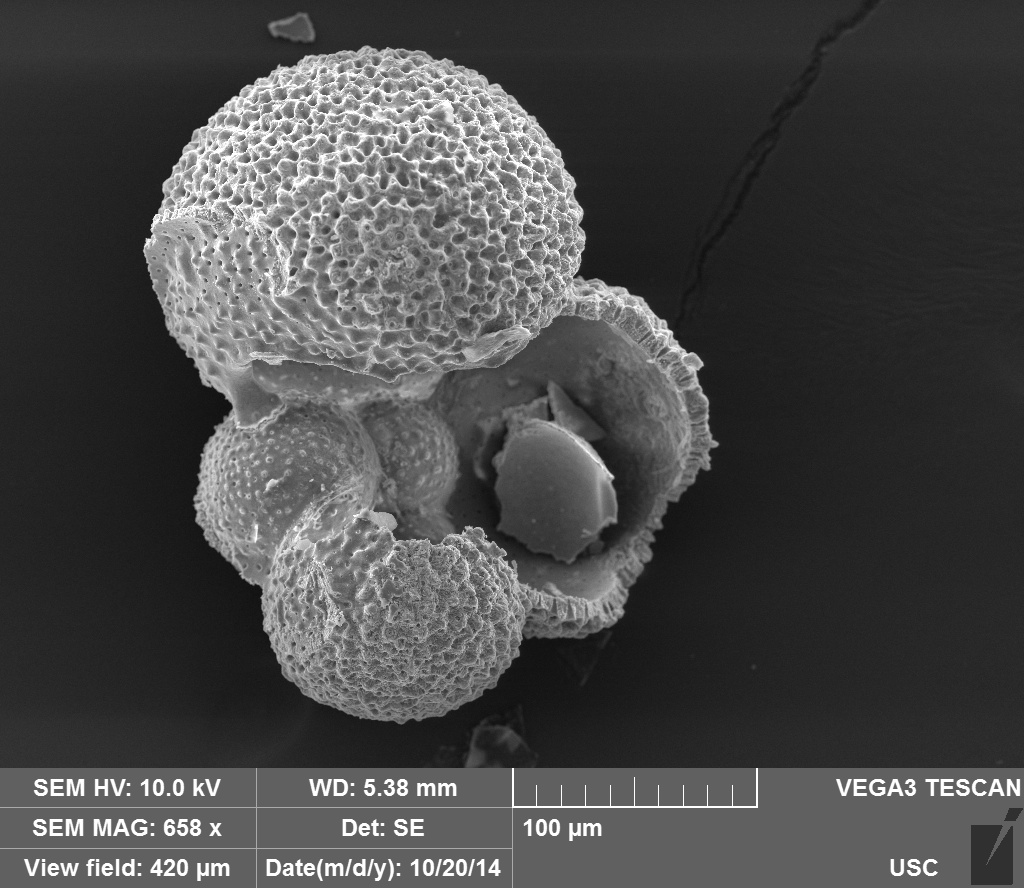West Coast Waters Acidifying Faster Than Rest of World
New NOAA Study Examined a Century’s Worth of Santa Barbara Channel Sediment

Core samples taken from the bottom of the Santa Barbara Channel reveal that the waters off the California coast are acidifying twice as fast as the global average. A new study led by National Oceanic and Atmospheric Administration scientists tracked the thickness of shells belonging to microscopic animals called foraminifera that had accumulated in Channel sediment over the last 125 years. Their data shows California waters experienced a 0.21 decline in pH in that time, more than double the worldwide average of 0.1 pH.
When carbon dioxide is absorbed by the ocean, as it is in increasing amounts from man-made emissions, it undergoes chemical reactions that increase the water’s acidity. Higher acid levels, in turn, kill off coral and make it harder for organisms like clams and oysters to build their shells. It also causes more frequent and more toxic algae blooms.
The study also made a surprising connection between acidification and a natural warming and cooling cycle called the Pacific Decadal Oscillation. While human-caused CO2 emissions are driving ocean acidification, the scientists said, this natural variation also plays an important role in alleviating or amplifying the trend. “During the cool phases of the Pacific Decadal Oscillation, strengthened winds across the ocean drive carbon dioxide-rich waters upward toward the surface along the West Coast of the U.S.,” said lead author Emily Osborne in a press statement. “It’s like a double whammy, increasing ocean acidification in this region of the world.”
The study’s findings could have major impacts on the management of California crab and shellfish fisheries, some of the most economically valuable fisheries in the country, the scientists said.



